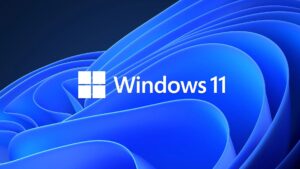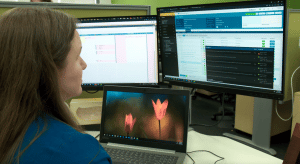So Is the Desktop Computer going the way of the dodo? It’s been hotly debated for years, do desktop PC’s have a place now or in the future? Or is it time they joined floppy disks and electric typewriters in the technology graveyard? The Internet is full of discussions around the idea that the desktop computer is doomed.
So we thought we’d give you a few of the key points from
either camp. What you take from either can be helpful in your future IT
business decision making. Particularly when it comes to replacement hardware
considerations.
Points from the “Soon they will die” camp.
These people believe it’s just a matter of time before the
humble desktop is rendered obsolete. They state it can be replaced by other
devices such as smartphones, tablets, or laptops. Here’s a few of their points
in support of their theories:
- Desktops
lack portability. Mobile devices provide greater amounts of flexible access
to emails, apps, and the Internet. Whenever and wherever a user may desire,
with comfort and ease. You can’t carry a desktop in your pocket in quite the
same way. - Desktops
require more space. It’s true that the size of desktops and their
monitors have gotten smaller over the years, but they still take up more
real-estate than mobile devices. - Mobile
device capabilities and power keep increasing. Thanks to the rapid
advances in compact technology, the boost in CPU performance and memory
capacity, mobile devices are becoming increasingly more capable and
powerful. Industry experts suggest that some of the premium smartphones or tablets with their multicore processors, large amounts of RAM, and powerful graphics hardware, could
quite easily match it with mid-range desktops. - Desktop
sales are on the decline. According to Statista 157 million desktops were shipped worldwide for the year 2010. By 2017 that number had dropped by around 35% to 97.8 million.
What the “Desktops are here to stay” camp believe.
These people are not convinced that a desktop apocalypse
looms near, for several reasons:
- Desktops
are easier to customise. Desktops can be fitted with numerous sets of
ports. USB, SIM, serial, HDMI, USB-C, Network, and Memory card readers for
example. Users can quickly and easily add a myriad of chosen peripherals. Very
few mobile devices offer the ability to create or access expandable
storage. - Many
businesses still use desktops. According to a 2018
Spiceworks study, 68% of businesses use desktops as their
primary computing device, compared to 1 percent using tablets. - Desktops
outlast mobile solutions. The average life expectancy of a desktop is 4.5
years, compared to 2.5 years for smartphones. But a Spiceworks survey found that some
businesses use both desktop and mobile for longer in real life. 70% use a
desktop for 5 years or more. 24% for 7 years or more. With smartphones,
42% use them for two years or less. 41% use them for three to four years. - Mobiles
can’t run all of the apps. Not all apps are created equal. Some can
only be run on high-performance machines. Desktops will always maintain their
high-performance edge because battery power doesn’t cut it when stacked up
against electricity. Additionally many business apps are easier to use on
desktops, thanks to larger screens or external keyboards.
The Last Word.
No matter what you believe, that desktops are dead or that they’re going to outlast religion, the decision is more easily made when considering a few simple factors. Does your IT future require high performance, mobility, flexibility, or brute strength? Or perhaps you’re after a combination
of each? Knowing what you want and how you want it to happen is your mitigating factor in finding the computing device that best meets the needs of your business. And if you’re still unsure, call us for help and we’ll assist you in future proofing your PC fleet.
Contact us on 1300 799 165 to discuss your needs today. Alternatively, browse our Intellect IT website for all the information you need regarding our range of professional IT services.





